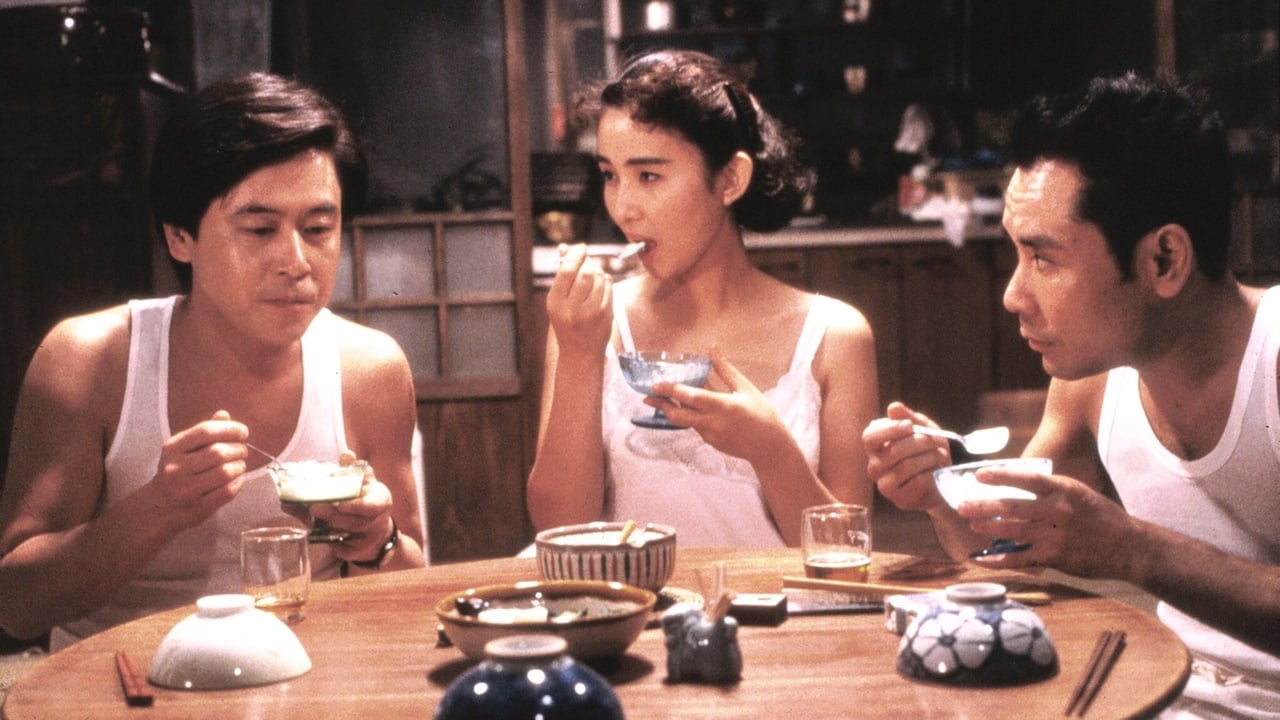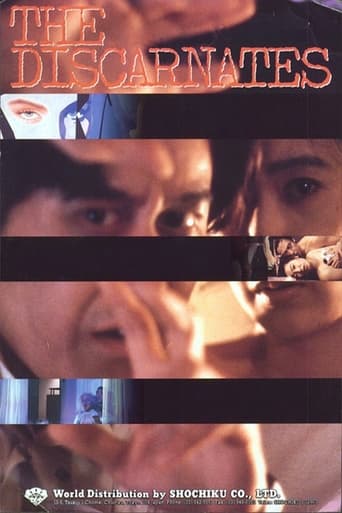

Recently divorced "Hidemi Harada" has only now begun to realize how utterly selfish he has been and is regretting the fact that he has been such a bad husband and father. With that in mind he decides to revisit the small hometown where he grew up to perhaps relive a part of his life. However, upon doing this he happens to see a man that resembles his deceased father. More incredibly the man invites him to his house and introduces him to a woman who resembles his deceased mother. To his further shock he learns that they are indeed his deceased parents and act like nothing has changed since he last saw them before their fatal accident over 28 years ago. But that's not all! However, rather than reveal any more of this movie and risk spoiling it for those who haven't seen it I will just say that this was an interesting Japanese horror film which is light on action but deep in meaning. I especially liked the performances of Kumiko Akiyoshi (as Hidemi's mother "Fusaka Harada") and Yuko Natori ("Kei") who both played their parts quite well. In any case, if a person is looking for plenty of gore or action they won't find it here but even so it's still an interesting movie which I enjoyed and I have rated it accordingly. Above average.
... View MoreRather than relying on gore or a typical vengeful ghost like most Asian horror, this is a character driven, dramatic story that comes across as sadly nostalgic instead of overtly horrifying. All the actors and actresses do a wonderful job coming across like real people with their own motivations and drives. The main character is one that is both likable and easily identified with by the watcher. His scenes with the ghosts of his parents leave you longing for simpler times when things made more sense and perhaps wishing you could have time to know your own parents as people. You can't help but be happy as he rediscovers something he thought he had lost forever, his ability to love. The horror comes with the ending plot twist and is done with elegance and restraint that does not detract from the rest of the movie's feel. It is an emotionally satisfying movie even if it is not really scary.
... View MoreNatsu up there in the original title = summer, while ijin probably means foreigner in the sense not at all of Westerner, but rather of outsider. Depending on the kanji, there might be a hint also, though it would have to be sarcastic and I'm not sure exactly who about, of mastermind, great man. I'm thinking of Harada's parents or himself as the target, but don't know whether that kind of pun/allusion goes in the language. I sincerely hope ijin isn't used for "zombies" as in the secondary English title here, but even if it is, there must be at least hints of other meanings.So, here's a film nearly as awkward as the unfortunate English translations of its title. It has three supremely interesting characters, none of them the bland protagonist.Yuko Natori's Kei, Harada's only nighttime neighbor in a large building of mostly offices, bursts through his door one night, clearly vulnerable, alone, feeling the emptiness of the building, perhaps suffering from drink but clearly damaged somehow beyond that. Though barely a sketch, and a bit older, she suggests the legion of slightly off young women who hound Haruki Murakami's protagonists. When dull Harada gently slams the door in her face, viewers can't help but feel a loss. Later of course, there's the quirk about her front: no face to face love-making. The mystery wrought by her ever-present clothing, in combination with her aggressiveness, creates a fine-toned sensuality.Hardly less sensual is Fusako, Harada's mother. Introduced after Kei, perhaps as lonely as Kei but in a different sense, roughly the same age as Harada and Kei, her aggressive doting on her son startles at first. She seems a counterpoint, a reflection, even a rival of Kei. I think early on, sweltering in the heat of the title's summertime, she was wearing just a slip. At one point she climbs onto Harada's back to reach a high shelf and falls into his arms. This moment takes a brief eternity to pass.The third finely turned character is Harada's father, Hidekichi. Somehow -- and no doubt the lighting, ambient sound, and cramped yet expansive bustling street set help -- he embodies an innocence that the film's creators have chosen to give to his times. Bare-armed, swaggering, lethargically energetic, oozing a hospitality that's actually quite cunning but appears naive, he could be any child's workingman father or any "Postman Rings Twice" film's husband. Even though there's little or nothing of the cliché cuckold plot here, without him the two fleetingly sublime women characters wouldn't resonate as they do.
... View MoreA lovely film. The performances by the high-quality cast are excellent and convincing. Kazama does a great job as the scenario writer who gets a second chance to spend time with his loving parents, who actually were killed when he was twelve. Yuko Natori is wonderful and sexy as his amorous neighbour who becomes his lover and confidante. Woven into the story is a lovely moral tale about a man who is a total failure as a person (though with a successful career) getting back in touch with his true feelings. Highly recommended.
... View More